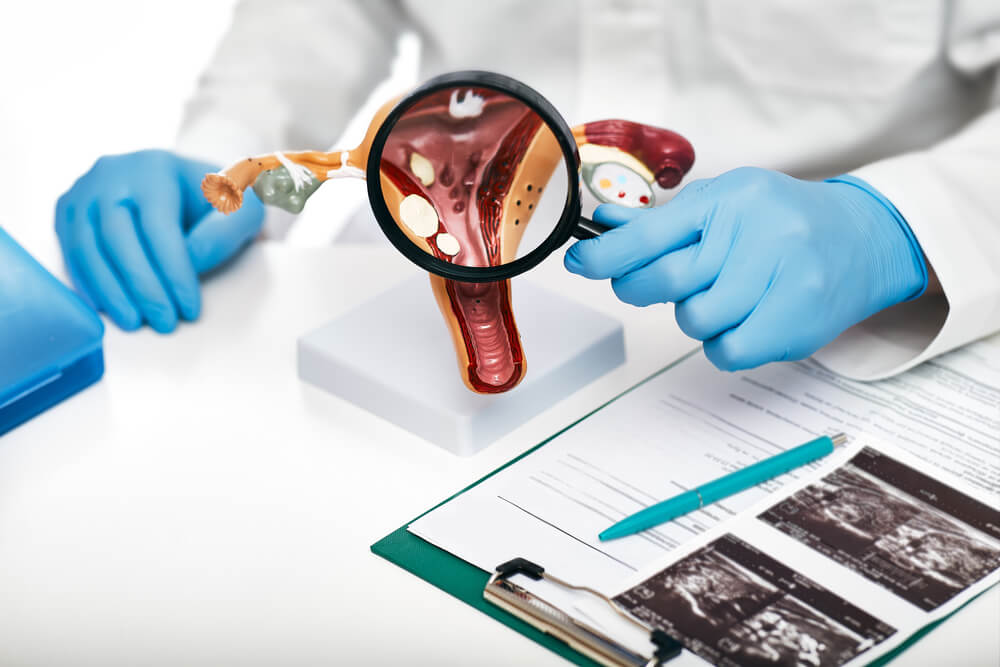If you had your last menstrual cycle one or more years ago and you are experiencing vaginal bleeding, this is technically called postmenopausal bleeding. Why does this bleeding happen? Should you be concerned, or is this normal from time to time? If you are asking yourself these questions, you have landed on the right article. Below, you will find out the must-know facts about bleeding after menopause, the symptoms and causes, diagnosis and tests, and the possible treatment methods.
Whenever in doubt, reach out to Gynecology Specialists in Miami. By doing this, you maximize your chances of an immediate diagnosis.
What Is Postmenopausal Bleeding?
First of all, the definition of menopause is one whole year with no periods at all. The average age of menopause in the United States is 51. Also, once you have experienced one year without periods, who are technically in menopause for the remainder of your life, even if you do not have any symptoms.
Postmenopausal bleeding is when any bleeding occurs after it has been one year or more since your last period. Depending on the patient, the bleeding can be heavy or light (spotting).
In most cases, postmenopausal bleeding happens due to noncancerous or benign gynecological conditions like endometrial polyps. However, for around 10 percent of female patients, bleeding after menopause may be endometrial or uterine cancer. In fact, uterine cancer is considered the most common reproductive cancer type (more common than cervical and ovarian cancers). Therefore, it is critical that you not ignore or downplay bleeding after menopause. It is recommended that you notify a gynecologist as soon as possible.
If you are feeling worried and concerned about your health, consult a healthcare professional for expert help and guidance. We recommend booking an appointment with a physician at New Age Women’s Health for expert assistance.
Is Postmenopausal Bleeding Common?
Bleeding after experiencing menopause is relatively rare, and around 10 percent of women over the age of 55 have it. Vaginal bleeding in the elderly is also relatively uncommon but possible.

Top Things to Know About Bleeding and Spotting After Menopause
Here are some essential facts you should keep in mind when it comes to postmenopausal bleeding.
- Bleeding after menopause is never normal, and you may require immediate medical attention: Do not ignore heavy flows or light spots after menopause. Unfortunately, these could be signs of underlying cancer.
- Although there are a few possible causes, some are more severe than others: For instance, fibroids, vaginal atrophy, and endometrial polyps could all be causes of postmenopausal bleeding. In more severe cases, the cause could be endometrial cancer.
- The older you are, the lower the risk: Women who have been in menopause for longer are less likely to experience bleeding after menopause. However, older women still need to be careful if experiencing bleeding. Sadly, women in their mid-60s are at the highest risk of endometrial cancer.
- You may need to talk to a specialist: If you are experiencing bleeding after menopause, you should be seen by a gynecologist immediately. If cancer is suspected or diagnosed, your gynecologist will then refer you to a gynecologic oncologist for further evaluation and guidance.
What Are the Causes of Menopause Bleeding?
There are numerous causes of spotting or bleeding after menopause. Some of them include:
- Vaginal or endometrial atrophy (the uterus’s or vagina’s lining becomes very thin and dry)
- HRT or hormone replacement therapy (progesterone and estrogen medications)
- Endometrial hyperplasia (the uterus’s lining gets very thick)
- Uterine polyps (abnormal growths within the uterus)
- Uterine or endometrial cancer (the cancer is within the uterus’s lining)
- Endometritis or cervicitis (inflammation of the uterine lining or cervix)
- Cervical cancer
- Experiencing bleeding from other nearby areas, such as the rectum or the bladder.
If you or a loved one are dealing with bleeding in menopause, talk to a healthcare professional immediately. By receiving early diagnosis and treatment, you ensure a speedier recovery.

How Is Bleeding After Menopause Diagnosed or Managed?
There are numerous ways to identify the cause of postmenopausal bleeding. For instance, some of the most common diagnostic methods include:
- Undergoing a cervix or vaginal exam by a healthcare provider.
- Doing a pap smear to analyze cervical cells.
- Performing a pelvic ultrasound
- Doing a biopsy of the uterus or endometrium
How Do You Treat Bleeding After Menopause?
Whether you are dealing with spotting after menopause or heavy bleeding, you want to consult with a medical expert for diagnosis immediately. The most crucial first step is to rule out cancer. Once this has been done and there is no sign of cancer or malignancy, there are a few effective ways to treat it. The treatment, as always, depends on the cause of the bleeding.
If you are dealing with bleeding or spotting after menopause, some medications include:
- Estrogen and progestin
- Antibiotics to treat infections of the uterus and the cervix
Alternatively, some patients may require surgeries such as:
- Hysterectomy: This is a surgical procedure that involves the removal of the cervix and the uterus. Women with uterine cancer need to undergo a hysterectomy. Talk to your doctor about the different approaches to removing the uterus. Your healthcare provider will discuss different procedures, some of them being less invasive than others.
- Dilation and curettage (D&C): This procedure samples the contents and the lining of the patient’s uterus. A hysteroscopy is usually combined with a D&C. In some cases, dilation and curettage can treat some endometrial hyperplasia types.
- Hysteroscopy: This procedure involves examining the uterus and the cervix with a camera. The healthcare professional will insert a thin tube called a hysteroscope to remove abnormal growths such as polyps. Usually, this procedure is done in the operating room, and you will receive general anesthesia.
Book an Appointment Today
If you are experiencing bleeding after menopause, give us a call today for further evaluation. Reach out to us now.





